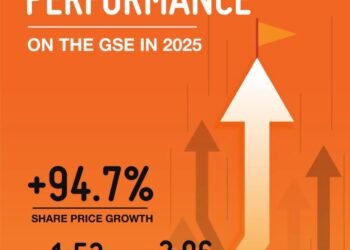Harrowing incidents from tales told by individuals who wanted nothing but a solution to their health problems seems almost like from a crime scene.
Making a case for the collective state of citizens health and general healthcare delivery is a critical part of a country’s true state of affairs. As negligible as it may seem on face value, its relevance goes beyond just government’s policies and strategies penned down on paper.
The health infrastructure in Ghana is in no doubt in need of not just a facelift, but a total overhaul to address the health challenges of Ghanaians.
Pervading issues such as inadequate maintenance, insufficient supply of essential drugs and consumables, lack of hospital beds, frequent power outages, lack of complementary efforts from government in assisting with soaring medical bills are just the tips of the iceberg.
Apart from the obvious human distress stories, poor healthcare quality has significant social and economic costs to individual families, industry and the nation. Poor healthcare quality, especially when it results in preventable deaths, is expensive and wasteful of both material and human resources.
Once again, the stark realities of failing health of sections of citizens and what they have to contend with daily was brought to the fore when news broke on the escalated prices in cost of dialysis treatment in the country.
A notice from the Renal Department of the Korle Bu teaching hospital informing the public about an increment in the cost of renal dialysis from GH¢380 to GH¢765.42 went viral on social media, inciting public debate and call for government’s intervention.
The seeming oversight and demand for answers, as all fees and charges from the hospital are supposed to be forwarded to Parliament for approval through the Ministry of Health, soon yielded a retraction from the Korle- Bu hospital management, which insisted that the new cost was only a proposal.
Regardless, the minority Caucus in Parliament raised concerns over the Korle-Bu Teaching Hospital’s unilateral decision to increase the cost of renal dialysis, denouncing the move as “illegal and outrageous”.
Minority Caucus’ Spokesperson on Health, Kwabena Mintah Akandoh, insisted that the hospital lacks the authority to establish its fees and charges without parliamentary approval.
He noted that Korle-Bu is a public institution and cannot set its own fees and charges “and any charge should come through Parliament through the Subsidiary Legislation Committee”.
Beyond this, he stated that the “main objective of a public health facility is not profit-making. The main objective of every public health facility in this country is to provide quality healthcare to the people and not profit-making”.
Some celebrities also spoke out against the price increase. Actor and politician John Dumelo said that dialysis treatment should be included under the National Health Insurance Scheme (NHIS) to make it more affordable.
Need for NHIS to go beyond ‘headache and sore throat’ coverage
Coupled with the soaring cost of living, citizens have to now cough up huge sums of money to address rising medical costs and medication, making one question the true significance of the National Health Insurance Scheme (NHIS). More than just a heavily touted government initiative, the Scheme has failed to deliver.
The intention of the NHIS in easing the financial burdens that otherwise restrict residents’ access to quality healthcare, has been called to question a number of times as nearly 70 percent of Ghana’s population, per Statista data, had health insurance coverage as of 2021.
Narrowing down to dialysis treatment in Ghana, the NHIS does not include such critical item in its ‘headache and sore throat’ coverage.
Wading into the conversation, Information minister Kojo Oppong Nkrumah, proposed an expansion of the NHIS to cover dialysis expenses. He noted that over the period, the NHIS only covers for treatment of acute renal failure, “but the same cannot be said of terminal renal failure”.
“I believe it’s about time the NHIS is widened to cover the cost of such treatments”.
Kojo Oppong Nkrumah
The issue of dialysis treatment equally brings to the fore the need for government to reassess the NHIS financing structure and reevaluation of the entire scheme finances on the healthcare across the country with particular focus on including terminal matters as priority cases.
Moreover, former President Mahama called for the immediate removal of taxes on medical supplies needed for dialysis in the country. He expressed that removal of taxes on supplies is needed for dialysis and that it has become a public health emergency needed to drive down the cost of the treatment.
Assuring his next administration will establish a fund to cater for capital intensive diseases such as Diabetes, Kidney diseases among others, Mr Mahama promised to “establish a Cancer and Kidney Disease Trust Fund to support victims suffering from these very expensive diseases. This fund will support Ghanaians who need assistance with the care of kidney diseases and cancers. These promises can be found on page 63 of the NDC’s manifesto of 2020”.
While the country contends with issues of health workforce, particularly with regards to distribution of health professionals, their training and education, motivation and retention has been a topical area of interest in recent times as the attrition rate equally keeps increasing.
Challenges of uneven distribution, low remuneration, poor working conditions have heightened calls for a keener look into the overall state of Ghana’s health system. The question is does Ghana have the ‘men’ and financial wherewithal to interface with the growing concerns of people?
Palliative solutions are not a holistic redress to matters of such dire magnitude. Government cannot afford to play Russian roulette with the health of Ghanaians and expect the miraculous to happen. Prioritization of health systems is key to driving the economy to growth and development which the government so desires to have.























